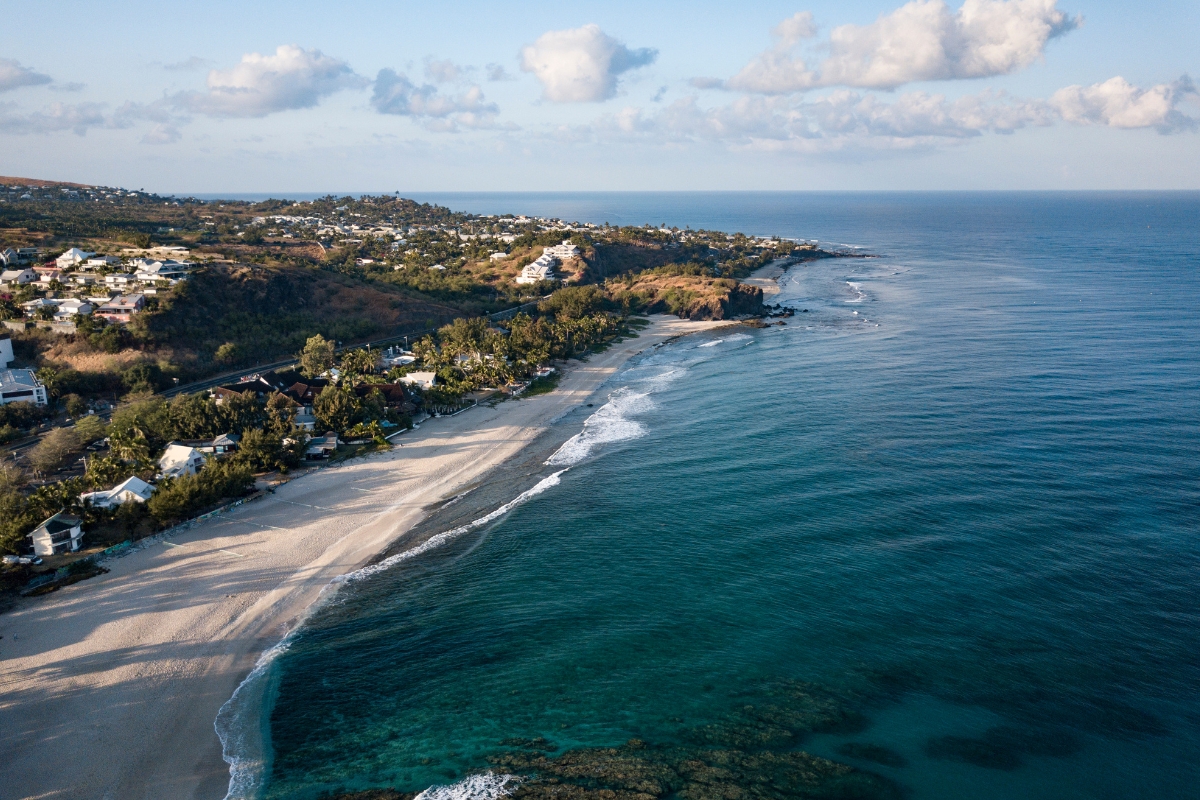Réunion, a French overseas department in the Indian Ocean, is celebrated for its dramatic volcanic landscapes, lush tropical forests, and vibrant Creole culture. Whether you’re curious about the best time to visit Réunion for adventure hiking, beach relaxation, or cultural exploration, this comprehensive guide will help you decide when to go to Réunion for an unforgettable experience. We’ll delve into the island’s unique climate, seasonal trends, tourist dynamics, cost factors, and local events to help you determine the best month on Réunion for your ideal getaway.
1. Introduction
Réunion offers a diverse range of experiences—from the challenging trails of its volcanic peaks to the serene shores of its coral reefs and the lively rhythms of its local markets. Many travelers ask, “what is the best time to visit Réunion?” or “when to go to Réunion” to ensure they maximize their adventure while enjoying comfortable weather conditions. In this guide, we break down the island’s climate and seasonal trends so that you can tailor your itinerary to your interests, whether you’re planning a rugged outdoor adventure or a relaxing cultural escape.
2. Understanding Réunion’s Climate
General Weather Patterns
Réunion boasts a tropical climate with a distinct seasonal rhythm, influenced by trade winds and the island’s rugged topography:
- Summer (November to April):
The island experiences hot and humid conditions, with temperatures often ranging between 25°C and 32°C (77°F to 90°F). This period can also bring heavy rainfall, particularly in the lowland and coastal areas, due to the tropical cyclone season. Despite the showers, the dramatic landscapes are lush and vibrant. - Winter (May to October):
Winters are milder and drier, with temperatures typically ranging from 18°C to 25°C (64°F to 77°F). The cooler, more stable weather makes it an excellent time for hiking and exploring the island’s volcanic regions without the intensity of the tropical heat.
Seasonal Variations
Because of its diverse geography—from coastal plains to towering mountains—Réunion’s weather can vary significantly over short distances. Coastal regions generally enjoy warmer conditions year-round, while the interior highlands are cooler and receive more rainfall. Knowing these differences is essential when planning your trip to Réunion, whether you’re interested in beach activities or mountain adventures.
3. Monthly Weather Breakdown
Rainfall and Temperature Trends
- November to April (Summer):
This period is characterized by high humidity and intermittent heavy rain, particularly from January to March. While the rain can be intense, it is often short-lived and followed by bursts of sunshine. This season is ideal for those who don’t mind a bit of a tropical downpour and are eager to witness the island’s lush, green transformation. - May to October (Winter):
During the winter months, the weather is generally drier and cooler. Clear skies and lower humidity make this an excellent period for outdoor activities such as hiking, canyoning, and exploring Réunion’s famous volcanic landscapes. The milder temperatures also provide a comfortable environment for cultural tours and city explorations.
Impact on Outdoor Activities
- Beach and Water Sports:
While summer offers warm seas for swimming and diving, the winter months provide calmer waters and ideal conditions for sailing and windsurfing. - Hiking and Volcanic Exploration:
Winter is often considered the best time to visit Réunion for trekking, as the cooler temperatures and lower risk of cyclones make trails more accessible. - Cultural and Urban Tours:
Both seasons offer rich cultural experiences, but the more stable weather of winter may enhance your ability to explore historical sites and local markets.
4. Tourist Seasonality and Trends
Monthly Tourist Numbers
- Peak Season (May to October):
Winter, with its milder weather and lower risk of tropical storms, attracts the most visitors. This is the best time to visit Réunion for those looking to combine outdoor adventures with cultural experiences. However, popular trails and attractions may become busy during this period. - Shoulder Season (April and November):
These transitional months can offer a sweet spot with decent weather, moderate tourist numbers, and more attractive prices. If you’re wondering when to go to Réunion with a balance of activity and tranquility, shoulder seasons are a strong option. - Low Season (December to March):
The summer months, affected by cyclones and heavy rains, see fewer tourists. While this can mean lower prices and a more intimate experience, outdoor plans might be subject to weather disruptions.
Advantages and Disadvantages
Peak Season (Winter):
- Advantages:
- Stable, mild weather ideal for hiking and sightseeing.
- Full range of services and outdoor activities available.
- Disadvantages:
- Higher demand may lead to crowded trails and higher prices.
Shoulder Season:
- Advantages:
- Pleasant weather with fewer tourists.
- Competitive pricing and a relaxed atmosphere.
- Disadvantages:
- Transitional weather can be somewhat unpredictable.
Low Season (Summer):
- Advantages:
- Lower prices and a more exclusive, quiet experience.
- Disadvantages:
- Increased risk of heavy rains and tropical storms may limit outdoor activities.
5. Cost Considerations for Travelers
Accommodation Pricing Trends
Réunion offers a range of lodging options from luxury resorts and boutique hotels to budget-friendly guesthouses:
- Peak Season (Winter):
Prices are generally higher due to increased demand, particularly in popular tourist hubs and near major attractions. - Shoulder Season:
Rates are more competitive during the transitional months, making it a good time for travelers seeking value. - Low Season (Summer):
The low season offers the best deals, with significant discounts on accommodations, though outdoor activities might be weather-dependent.
Flight and Transport Costs
Airfare to Réunion fluctuates based on the season:
- Peak Season:
Higher demand drives up flight costs and local transfer fees. - Shoulder and Low Seasons:
Reduced demand typically results in discounted fares and attractive travel packages.
Budgeting Tips
- Book Early:
Secure flights and accommodations in advance, especially for peak season travel. - Compare Deals:
Use travel comparison sites and fare alerts to find the best offers. - Consider Packages:
All-inclusive packages that combine flights, lodging, and tours can provide substantial savings. - Stay Flexible:
Adjusting your travel dates slightly may lead to better rates and fewer crowds.
6. Other Essential Factors
Local Events and Cultural Experiences
Réunion offers a unique blend of French and Creole influences:
- Festivals:
Experience local festivities such as the Fête de la Musique and regional culinary festivals, which showcase the island’s vibrant culture. - Historical Sites:
Explore colonial architecture, local markets, and traditional villages to get a true sense of Réunion’s heritage. - Culinary Adventures:
Enjoy an array of gastronomic delights—from Creole cuisine to French-inspired dishes—at both high-end restaurants and local eateries.
Water Conditions for Beach and Water Sports
- Dry Season:
The winter months offer calm, clear waters ideal for swimming, snorkeling, and sailing. - Wet Season:
While summer brings warmer sea temperatures, the occasional heavy rains can affect water clarity and overall beach conditions.
Special Offers and Packages
Watch for seasonal promotions:
- Discounted Rates:
Many resorts offer attractive discounts during shoulder and low seasons. - Bundled Packages:
Look for bundled deals that include tours, meals, and transfers. - Last-Minute Deals:
Flexibility with your travel dates might allow you to capitalize on last-minute offers.
7. Comparative Analysis: Finding the Best Month
Choosing the best time to visit Réunion depends on your travel priorities:
- For Outdoor Adventures and Hiking:
Winter (May to October) is widely regarded as the best time to visit Réunion for trekking and exploring volcanic landscapes due to its mild, dry conditions. - For Beach and Water Sports Lovers:
The dry season offers ideal conditions for enjoying the island’s coastal waters, while the wet season, though warmer, might be less predictable. - For Budget and Cultural Explorers:
Shoulder seasons (April and November) provide a balanced experience with fewer tourists and more attractive pricing.
Many travelers conclude that October is the best month on Réunion for a well-rounded trip, offering pleasant weather, manageable tourist numbers, and excellent value.
8. Tips for a Successful Trip
Planning and Booking Strategies
- Book Early:
Reserve flights, accommodations, and tours well in advance, especially if traveling during the peak season. - Use Comparison Tools:
Leverage online travel platforms and fare alerts to secure the best deals. - Stay Flexible:
Adjust your travel dates to take advantage of lower rates during shoulder or low seasons. - Gather Local Insights:
Engage with travel forums and local guides to discover hidden gems and up-to-date travel tips on Réunion.
What to Pack for Different Seasons
- Dry Season Essentials (May to October):
Bring lightweight, breathable clothing, swimwear, sunglasses, a wide-brimmed hat, and high-SPF sunscreen. Comfortable hiking shoes and a light jacket for cooler evenings are also advisable. - Wet Season Essentials (November to April):
In addition to tropical attire, pack a waterproof jacket or umbrella and quick-dry clothing to handle occasional heavy showers. - Versatile Accessories:
A reusable water bottle, a high-quality camera, and snorkeling gear (if you plan to explore the underwater world) will enhance your overall experience.
Insider Advice for Visitors
- Local Transportation:
Options include taxis, rental cars, and organized tours. Hiring a local guide can enrich your cultural and natural explorations. - Dining:
Enjoy a mix of gourmet dining and local eateries to fully experience Réunion’s diverse culinary scene. - Cultural Etiquette:
Embrace the local customs and a friendly attitude to enhance your interactions with Réunion’s warm and welcoming people. - Health and Safety:
Réunion is generally safe, but always take standard precautions, keep your belongings secure, and stay hydrated under the tropical sun.
9. Conclusion
Deciding when to go to Réunion depends on your travel priorities. If you’re seeking outdoor adventures, stunning hikes, and vibrant cultural experiences under mild, dry weather, then the winter months (May to October) are the best time to visit Réunion. However, if you prefer a more budget-friendly experience with fewer crowds, consider the shoulder season. Many travelers find that October is the best month on Réunion for a balanced, memorable getaway. No matter your interests, Réunion offers a unique blend of natural beauty and cultural richness that promises an unforgettable island adventure.
10. Frequently Asked Questions (FAQ)
Q: When is the best time to visit Réunion?
A: The best time to visit Réunion is generally during the dry season (May to October) when the weather is mild and ideal for outdoor activities.
Q: When to go to Réunion for optimal outdoor adventures?
A: If you’re planning on hiking and exploring the island’s volcanic landscapes, the winter months (May to October) provide the best conditions.
Q: What is considered the best month on Réunion?
A: Many travelers consider October the best month on Réunion due to its pleasant weather, lower tourist numbers, and excellent value.
Q: Are there significant price differences between seasons in Réunion?
A: Yes. Peak season sees higher prices for accommodations and flights, while shoulder and low seasons offer more competitive rates and attractive deals.
Q: Is Réunion suitable for both adventure seekers and cultural explorers?
A: Absolutely. Réunion offers fantastic opportunities for outdoor adventures like hiking and water sports, as well as rich cultural experiences through its local festivals, cuisine, and historical sites.

